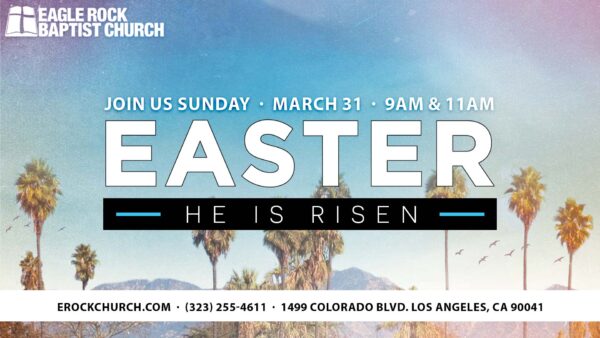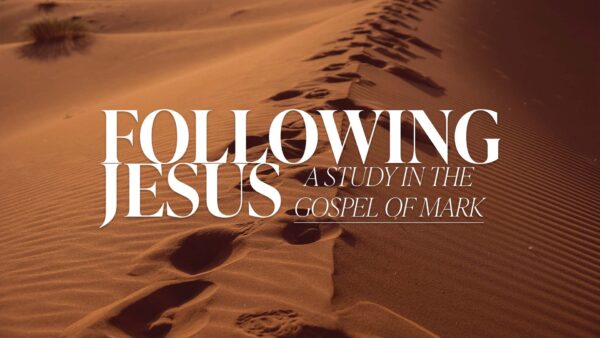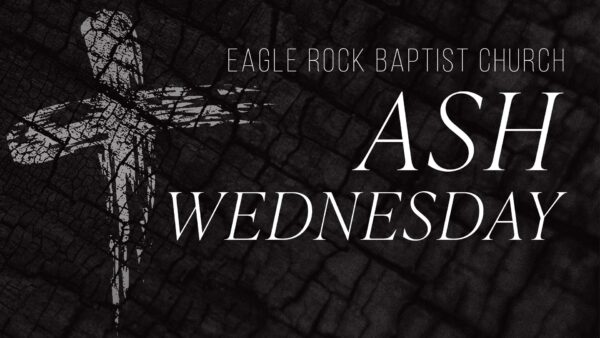Welcome to our SERMON PAGE!
Check out our most recent messages below or browse our archive of Series, Topics, and Speakers.
Loading Content...
Share a Link to this Message
The link has been copied to your clipboard; paste it anywhere you would like to share it.
CloseAndrew Krayer-White - July 12, 2021
The Horrors of Hell
It’s good to be with you church, if we haven’t met, my name is Andrew I serve as one of the Pastors here. It’s a privilege to be able to share God’s word with you. Today we’re going to look at one of the hardest, ugliest doctrines of Christianity and that is the doctrine of Hell. I’m not bashful to say, if there was one aspect of Christian belief that I could edit or even remove this would be it. Maybe you feel the same, you want to head for the door as you hear that it’s the topic for our time. It is one of the most objectional aspects of our faith to those outside our faith. In our age of supposed tolerance, the conclusion that apart from a saving faith in Jesus all are condemned to an eternity in Hell, is nearly unthinkable.
But we can’t ignore it. It’s in God’s word, and a right understanding of Hell is essential to healthy Christianity. We are a community here that is striving unapologetically to be formed by God’s Spirit, through His word. So, it’s God’s word that we give precedence in shaping what we believe about Hell. Not cultural depictions of it. Not our emotional reactions to it. But what the bible has to say about it.
Take this for instance, in preparing this message, I read an article in the Christian Century by Barbara Brown Taylor written back in 2006. In it, Taylor described a phenomenon of “Hell Houses.” Maybe you’re familiar with these. I certainly wasn’t.
“Some congregations” Taylor says, “went to great lengths to turn their fellowship halls and Sunday school rooms into “hell houses,” where believers and unbelievers alike could get the devil scared out of them for free… Hell houses contain rooms in which certain grave sins are portrayed, including drug use, abortions, same sex relationships, school shootings and satanic rituals.
The perpetrators of these sins show up in hell later on—where there is wailing and gnashing of teeth—while visitors are offered the chance to choose heaven instead.”
I want to trust that their hearts were in the right place. But when the biblical authors speak of Hell, by and large these are not the pictures they portray. Perhaps a more biblical hell house would contain a hell room for those who called their brother a fool, a room for gossips and slanderers, for those who failed to give food to the hungry, drink to the thirsty, shelter to the stranger or visit to the sick or imprisoned, there would be a special room set apart for those who bury the talents God’s given them. Do you see the difference? Hell is often popularly portrayed as a place for the other: for the most egregious violators of social and religious norms, certainly not a place for us. Here we need to be careful. Jesus’ words about hell were often delivered as a warning to his disciples and a rebuke to the most religious. Hell is as much a doctrine for us as it is for others.
We’re going to begin our look at Hell, in Luke chapter sixteen.
As you turn there, you’ll see we’re looking at a story that Jesus told. The reason I’ve chosen to begin with this passage over possible others, is because it’s a story told by Jesus. Which means Jesus believed in Hell. For all of you who might be on the fence, thinking “I’m not sure if is it a real thing is it not a real thing. Clearly Jesus thought it was real.” He talks about Hell, more than anyone else in the bible. That doesn’t mean He’s some fire and brimstone preacher or even that His use of hell is identical to the image it stirs in your mind. It does however tell us that Hell played a significant role in his preaching and mission.
Let’s jump in. Luke chapter 16, beginning with verse 19.
“There was a rich man who was dressed in purple and fine linen and who feasted sumptuously every day. And at his gate lay a poor man named Lazarus, covered with sores, who longed to satisfy his hunger with what fell from the rich man’s table; even the dogs would come and lick his sores. The poor man died and was carried away by the angels to be with Abraham. The rich man also died and was buried. In Hades, where he was being tormented, he looked up and saw Abraham far away with Lazarus by his side. He called out, ‘Father Abraham, have mercy on me, and send Lazarus to dip the tip of his finger in water and cool my tongue; for I am in agony in these flames.’ But Abraham said, ‘Child, remember that during your lifetime you received your good things, and Lazarus in like manner evil things; but now he is comforted here, and you are in agony. Besides all this, between you and us a great chasm has been fixed, so that those who might want to pass from here to you cannot do so, and no one can cross from there to us.’ He said, ‘Then, father, I beg you to send him to my father’s house— for I have five brothers—that he may warn them, so that they will not also come into this place of torment.’ Abraham replied, ‘They have Moses and the prophets; they should listen to them.’ He said, ‘No, father Abraham; but if someone goes to them from the dead, they will repent.’ He said to him, ‘If they do not listen to Moses and the prophets, neither will they be convinced even if someone rises from the dead.’”
Even on the first readthrough it’s hard to miss the contrast set up. The rich man clothed in purple and fine linen, speaks of profound wealth, perhaps even royalty. While Lazarus is clothed in sores. The rich man feasts, which is a term used for elaborate meals on special occasions, yet he does it on the daily. Lazarus lay at the gate longing to receive even a crumb from his table. We’re told Lazarus was kept company by wild dogs, who licked his sores, and of which he was too helpless to fend off. This isn’t Lassie keeping him company, these dogs are anticipating one day soon he’s dinner. In the minds of many Jews of Jesus’ day, the rich man would have been seen as righteous and upright. His wealth and status would have been understood as the outward validation of God’s favor, while Lazarus, destitute, helpless and unclean surely was receiving the due reward for sinfulness.
All but one detail would lead to this conclusion and that is the name. While the rich man’s name is omitted, the poor man is named – Lazarus - a name that a Jewish audience wouldn’t miss – it means “God helps.” And help he does. Lazarus dies and angels sweep him off to Abraham’s side, or more specifically to Abraham’s bosom, the word implies intimacy and embrace. While the rich man dies, is buried and finds himself in Hades. Hades is one of the three words in the bible for Hell.
We have to be careful in how we handle some of the details in this story. Some are reflective of reality, for instance, this life isn’t all there is. After death we will go somewhere. While other details are used as a vehicle to communicate the meaning and purpose of the parable. In verse 23 for instance, we’re told that from Hades, the rich man looked up and saw Abraham. Not only that, he was able to communicate with Abraham. I could be wrong, but more than likely, that is not something that will be true of the ultimate state. Rather it’s a conversation embedded with deeper truth. It’s also probably not too helpful to speculate much about whether this is a picture of some intermediate state before the resurrection and judgement, or after. Remember Pastor Rick shared last week that after we die we will stand in judgement. It doesn’t seem like that’s happened yet. We can hold these details somewhat loosely because the answers to those questions do not take away from the main point Jesus is making that There are eternal consequences for how we live.
Another thing this text teaches us is that Hell is a place of agony and torment. I’m not making that up, Jesus describes it as torment in verses 23 & 28, and agony verse 24 and 25. I’m not going to embellish those words, there’s enough horror in them on their own, but nor can we remove them. We must sit with them, as if being presented with the diagnosis of a life-threatening illness. Simply pretending it’s not there doesn’t make it go away. Rather it solidifies the inevitable. Unlike some of the other details in this story, if you take away the fact that the experience of hell is horrendous, the story collapse without purpose. There’s then nothing to warn us about – there would be no consequences for how we live.
This is a side note, but generally speaking it’s the those most insulated and comfortable that are most adamantly opposed to the idea of a place of eternal punishment. Whereas those who have experienced gross injustice, terrible suffering, the realities of war, they struggle much less with the idea that there are some people who would be consigned to hell. In fact, it gives some comfort that the architects of atrocities would receive justice for their actions. We are personally freed from the need for vengeance because we can rely on God’s justice. In this His eternal discipline is demonstrated as a sign of love not the absence of love. Because only an unloving God would refuse to act on behalf of those he loves. Right?
Back to the text, in verse 26, Abraham speaks of a chasm. “between you and us a great chasm has been fixed, so that those who might want to pass from here to you cannot do so, and no one can cross from there to us.’” Just as the gate separated Lazarus from the rich man, now the rich man is separated from Lazarus and Abraham. The word fixed implies finality. There is no opportunity to cross back over, there are no do-overs.
We get one chance to repent and that’s it.
Beyond those three points, I don’t want to become too speculative. Hell is an eternal consequence for how we live, it is a place of agony and torment, and from which there’s no turning back. But we haven’t really talked about the why. I’ll tell you the text is rather silent as to why Lazarus was with Abraham. He gets left behind in the narrative. But there are some pretty solid clues as to why the rich man ends up in Hades.
Some of you might conclude that it’s because of his sinfulness. Others of you might get more specific, “well because he lacked compassion or generosity towards Lazarus.” But that begs a question: if the rich man would have merely invited Lazarus to dinner would he have gotten an angel uber to Abraham as well? That doesn’t necessarily line up with the gospel.
Let’s take a detour and talk about context: We don’t know where Jesus told this story. Perhaps he was out in a field, a large spacious area in town, maybe he was eating a meal. Wherever it was, Jesus had disciples around him, along with a surprising audience of those viewed as the untouchables in their society. In addition to that were a few angry Pharisees. In the beginning of Luke 16, Jesus told a parable about generosity and the way we use our wealth. At the conclusion of which he stated “No one can serve two masters. Either you will hate the one and love the other, or you will be devoted to the one and despise the other. You cannot serve both God and money.”
Luke interjects with the observation “The Pharisees, who were lovers of money, heard all this, and they ridiculed him.” In other words, they rejected Jesus, because of their love of money. “So (Jesus) said to them, “You are those who justify yourselves in the sight of others; but God knows your hearts,” Meaning God knows what you love. “for what is prized by human beings is an abomination in the sight of God.”
The word abomination is often used describing God’s attitude towards idolatry. In Daniel 9, Daniel prophecies of a pagan sacrifice offered in the temple, it’s called the “the abomination that causes desolation.” It was an abomination because it was a sacrifice offered in the house of God to something that wasn’t God. Jesus uses that word to speak of the Pharisee’s love. Their love was an abomination because it was putting something, namely wealth, before God. Another way of encapsulating this is to say We worship what we love most.
In a 2005 Commencement Address to Kenyon College, the author David Foster Wallace made the observation “there is no such thing as not worshipping. Everybody worships. The only choice we get is what to worship.” He then goes on to sa “If you worship money and things—if they are where you tap the real meaning in life—then you will never have enough. Never feel you have enough. It’s the truth. Worship your own body and beauty and sexual allure and you will always feel ugly, and when the time and age start showing, you will die a million deaths before they finally plant you.”
Let’s connect this back to the story we’ve been looking at. Right on the heels of his interaction with the Pharisees, Jesus tells the story of the Rich Man and Lazarus. Why? He didn’t need to tell the Pharisees what hell was like. They would have known it’s a consequence for the way we live, it’s a place of agony and torment and from which there was no turning back. What would have shocked them was Jesus’ conclusion they were in jeopardy of ending up there. That’s the surprise. The rich man in the story didn’t go to hell because he failed to give Lazarus some food from his table. He wasn’t just there because of sinful greed. He was there because he built His life on worshipping something that wasn’t God. He was there for idolatry. In a sense, that’s what hell is about. We don’t just go to Hell because we sin, we go to hell because we have placed something in our lives before God and our idolatry leads to us sin. Paul says as much in Romans chapter one.
There Paul talks about the wrath of God being revealed against humanity “For although they knew God, they neither glorified him as God nor gave thanks to him, but their thinking became futile and their foolish hearts were darkened.” To glorify God is to acknowledge and worship him. Humanity, Jew and gentile, failed to worship God. That doesn’t mean they didn’t sing. You know worship is bigger than that don’t you? In Romans 12 Paul says “present your bodies as a living sacrifice, holy and acceptable to God, which is your spiritual worship.” They were offering their lives to something that wasn’t God. They “exchanged the glory of the immortal God for images made to look like a mortal human being and birds and animals and reptiles.”
If you’re familiar with Romans you know what comes next, a catalogue of sins. And since they did not see fit to acknowledge God, God gave them up to a debased mind and to things that should not be done. “They were filled with every kind of wickedness, evil, covetousness, malice. Full of envy, murder, strife, deceit, craftiness, they are gossips, slanderers, God-haters, insolent, haughty, boastful, inventors of evil, rebellious toward parents, foolish, faithless, heartless, ruthless."
They know God’s decree, that those who practice such things deserve to die—yet they not only do them but even applaud others who practice them. It begins with idolatry, God gives us over to our idols and sinfulness, and it leads to death. And if you know Paul, death doesn’t just mean physical death. Often, he’s speaking of spiritual death and hell.
The hell of hell is that our idolatry and worship doesn’t cease with death. We will continue to worship eternally whatever it was we worshipped in this life. If it’s God the Father, Son and Spirit, praise Jesus. But if it was something less than God, we will continue to chase that desire eternally. But tragically now in eternity it will be totally vacuous and devoid of even the slightest goodness or grace that was present in it in life. It will be hollow, infinitely insufficient to bring about the fulfillment we eternally created for in Jesus. As Augustine says, “our hearts are restless until they find our rest in God,” the converse of that makes Hell an eternal restlessness, forever chasing shadows.
In Psalm 115, the Psalmist states: “But their idols are silver and gold, made by human hands. They have mouths, but cannot speak, eyes, but cannot see. They have ears, but cannot hear, noses, but cannot smell. They have hands, but cannot feel, feet, but cannot walk, nor can they utter a sound with their throats. Those who make them will be like them, and so will all who trust in them.” Did you catch that last bit. We will become like them. This is the last principle of biblical worship we become like what we worship. As in Corinthians “contemplating the Lord’s glory, leads to being transformed into His image with ever increasing glory” So in the same way our worship of idols conforms us into their craven image. If you’re familiar with the Lord of the Rings, this is what happened to Smeagol. His love for the ring, his precious eventually transformed him from a hobbit into Gollum. How long will we be in hell before we cease to be human at all, before we become the very horrors of hell?
If we go all the way back to our text in Luke, I believe that’s what’s happened. The rich man has been given over to love of money, and in in death he continues to be consumed by it and conformed to it. He views Lazarus as an object, he see’s Lazarus’ function is to serve him by refreshing him with water, or to take a message to his brothers. As bad as Hell is, we find no contrition in his heart or repentance on his lips. Isn’t it interesting that he does not ask to leave, only for a slight bit of comfort where he is. He has bound himself to Hell as much as he is bound by it. In the Romans chapter one, three times it says “God gave them over.” There is a sense where that is what Hell, God giving us over to that desire, for whatever it may be, with zero chance of fulfillment. In the Great Divorce C.S. Lewis has that wonderful and terrifying line “There are only two kinds of people in the end: those who say to God, "Thy will be done," and those to whom God says, in the end, "Thy will be done."
As we close, I want to remind us of the good news here: Jesus is the one that Moses and the Prophets spoke about, who himself crossed the great chasm, and rose from the grave. In order that we could be saved.
Peter tells us in our memory verse: it’s not God’s desire that any should perish, and all would come to repentance. As such, Jesus’ word of warning is not against us. It’s for us. It is so easy for us to live like the Pharisees, good moral, religious people, trusting in our oqn righteousness. Not drinking too much, not sleeping around or with the wrong sex. To come to church regularly, give minimally, share our faith sporadically, and all the while worshipping the idols of our own choosing. God wants more than the crowded margins of our lives, he wants all of our lives. And his son paid the price for all our lives, and all of our eternities, if we would only repent, turn away from our idols and turn toward Him. I pray we would hear his warning, recognize ourselves in the Pharisees and the Rich man, the areas where we’ve placed things in our lives before God, worshipping things other than God. Repent of those things. I pray that we see ourselves rightly in Lazarus. We are the blessed poor in Spirit, we have nothing to offer God, or with which to commend ourselves to Him. Diseased and defiled, we are helpless. But church God is our help. Let us throw ourselves on his grace and mercy, and allow his mercy to lead us to love, love that leads to worship, and worship that leads to an eternity in His presence.
Father God, we praise you that in Jesus you have delivered us from death, and in your grace provided us the gift of eternity in you. Would you convict us of our sin, waywardness, and idolatry. Help us to be a people who treasure you above all others, that you would be our joy, hope and help.
Lord, I want to lift up to you, those who have not entered into a saving relationship with your son Jesus. May today be the day for them. That today, would be their homecoming, and embraced by you their heavenly father. If you hear that, and you know that’s me, and I want that. You can begin that eternal relationship today, all you have to do is in the quiet of your heart say, Father God that is me. I confess all of the things I my life I love more than you, I want you to be first, I want to love and worship you above all others. Would you become the Lord of my life.
Father, again I thank you for the work you’re doing amongst us. In Jesus name. Amen
More Messages from Andrew Krayer-White
From Series: "One Minute After You Die"
For centuries, humans have tried to figure out how to live longer and avoid this inevitable fact: we all die. When faced with that reality, how do you feel? Fearful, hopeful, somewhere in-between? Join us for our new sermon series "One Minute After You Die" beginning July 3rd! How to join: In-Person during our Outdoor Worship Service on Sundays at 11 am (click here for details) or… Watch online at www.erockchurch.com/live Live Stream Service Times: Saturday at 5:30pm Sunday at 9am, 11am, 1pm, 6pm Wednesday at 7pm For more information on our worship services click here.
More Messages from Andrew Krayer-White...

March 29, 2024
"Torches, Rams, & The Cross" (Good Friday 2024)
Andrew Krayer-White

March 3, 2024
"What The Bible Says About Marriage and Divorce"
Andrew Krayer-White
Powered by Series Engine
Download our app to listen to our sermons, take notes, watch our Daily Devotional videos, and so much more!

